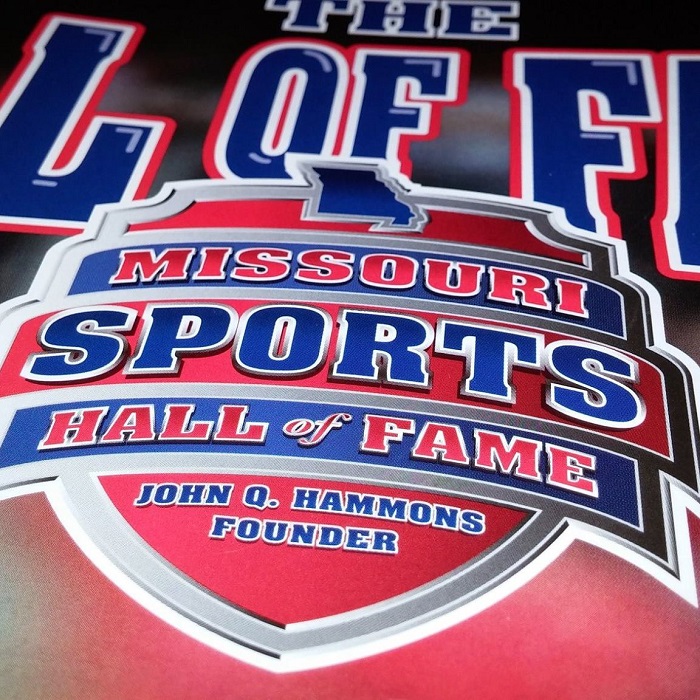Inductees
Jim Raynor

In the late 1980s, while attending college in Springfield, Jim Raynor enrolled in an introductory course about something called sports medicine.
This was years before sports medicine would explode across professional, college and then high school athletics.
Turned out, in a few short years, Raynor played a major role in fueling its rise. And because of his work over the next three decades, the Missouri Sports Hall of Fame proudly inducted Raynor with the Class of 2024.
Raynor worked nearly 30 years for Mercy Sports Medicine, first as the Director of HealthTracks Sports Training from 1995 to 2005 and then as Administrative Director from 2005 to 2023.
In his time with Mercy Sports Medicine, he was primarily responsible for overseeing operations, growing market share and service, and increasing visibility of the sports medicine program. He oversaw the strategic planning, budgeting and policy development and implementation, and developed and monitored key performance indicators that produced efficient and effective results.
The company expanded by partnering with local high schools and colleges to be their sports medicine provider, and also greatly into the St. Louis market.
And that’s only part of his story.
Raynor also served on the U.S. Olympic Committee’s Anti-Doping Agency from 1995 to 2004 and worked the 2002 Salt Lake City Olympics. He taught a sports medicine and athletic training courses at Missouri State (1995-2003) and served on MSU’s graduate program committee (2008-2023). Additionally, he was on the MSHSAA (Missouri State High School Activities Association) Sports Medicine Advisory Committee (2013-2023), and its co-chair for eight years.
Raynor served on the American Academy of Pediatrics Sports Medicine Committee from 2004 to 2008.
“At the time (in college) I did not have a grasp on the potential the field would have on the community,” Raynor said. “But looking back there are key milestones that contributed to the growth.”
Those milestones were in technology – namely the advent of arthroscopic surgeries – as well as in education (colleges offering degrees), and awareness that local interscholastic sports needed sports medicine.
Two industry leaders in Springfield transformed his life – Missouri State University professor Gary Ward and Dr. Bernard Griesemer.
“(Ward’s) impact on myself and so many others is unprecedented, and it was done by asking a simple question – ‘Why?’” Raynor said. “That question has been a foundational cornerstone of my professional career. It created a mindset to pursue excellence in helping others and not allow complacency to rule your thoughts.”
Griesemer was the one who brought him back to Springfield in 1995. Raynor was working for the University of Oklahoma, including as the athletic trainer on its 1994 national championship baseball team, after having attended Evangel and Missouri State universities.
“Griesemer had a vision of creating a new model of sports medicine within a healthcare setting,” Raynor said. “At the time, it was the first of its kind, by combining pediatric primary care and sports medicine emphasizing prevention of injury and illness. It was cutting edge and there was not another entity in the United States that had this model and was successful.”
“He took a chance on me and gave an opportunity of a lifetime to lead, dream, create and grow a one-of-its-kind program that has been imitated but never duplicated,” Raynor said.
HealthTracks created a go-to place for sports medicine, and it grew exponentially in 10 years. Along came Mercy Sports Medicine, which created a comprehensive unified team – from three entities – and focused on prevention, emergency sideline care, medical intervention and rehabilitation.
In essence, Raynor refused to let Mercy Sports Medicine become complacent.
Along the way, Dr. Griesemer linked him with the Olympics. Raynor also had a profound impact on MSHSAA, whose sports medicine committee implemented a number of changes, including heat illness prevention, a 16-day acclimatization process and concussion evaluation and management.
“The work that I was able to accomplish with MSHSAA is something I will cherish forever,” Raynor said. “I would say the same for the opportunity to serve in a similar capacity on the American Academy of Pediatrics Committee on Sports Medicine and Fitness.”
Fortunately, he long had the support of his wife, Brenda, and their children Trey, Jade, Joshua and Jack.
“I don’t think I can eloquently express how rewarding the impact is,” Raynor said. “I am thankful that I will never know the full impact of the work because my proudest accomplishments empowered frontline co-workers to prevent or minimize a tragedy. I just wanted to do the best I could with what I had with the time I was given.”




